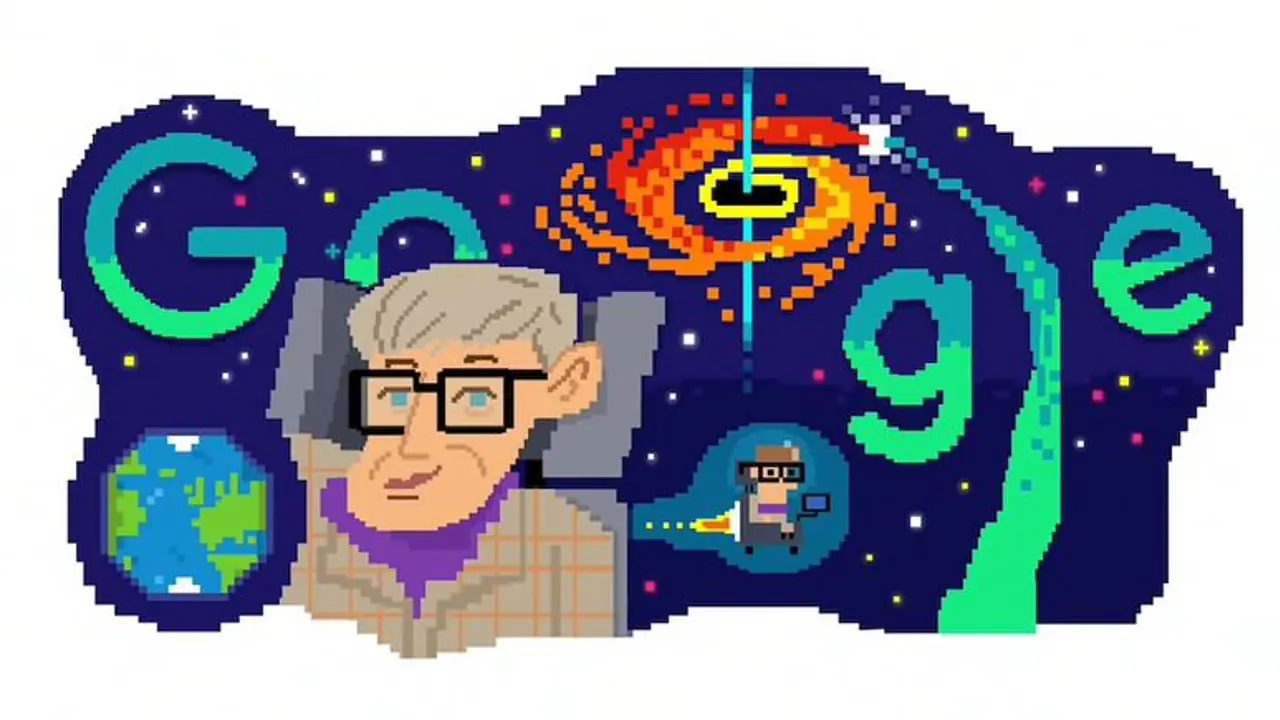The clip, released to commemorate Hawking's 80th birthday, contains a voiceover in the physicist's computer-generated voice summarising his achievements and painting a message of optimism for the future.
Google Doodle honours English cosmologist, novelist, and theoretical physicist Stephen Hawking, one of history's most significant scientific minds, with a two-and-a-half-minute video. The clip, released to commemorate Hawking's 80th birthday, contains a voiceover in the physicist's computer-generated voice summarising his achievements and painting a message of optimism for the future. The voice of Hawking in the Doodle, illustrated by Matthew Cruickshank, was developed and used with the Hawking estate's permission.
Hawking's ideas on the origins and dynamics of the universe, from merging black holes to the Big Bang, revolutionised current physics. At the same time, his best-selling books made the subject widely accessible to millions of readers worldwide.

In 1942, Stephen William Hawking was born in Oxford, England. He was fascinated by how the cosmos worked from an early age, and his curiosity and brilliance earned him the moniker "Einstein." Following a diagnosis of a neurological condition at the age of 21, Hawking was inspired by the music of composer Richard Wagner and the loving support of his future wife Jane Wilde to devote himself to physics, math, and cosmology.
Also Read | Google Doodle marks beginning of winter with hedgehog walking on snow
Hawking defended his doctoral thesis, "Properties of Expanding Universes," at the University of Cambridge in 1965, presenting the revolutionary theory that space and time originated from a singularity, a point both infinitely small and dense, best known today as the essential characteristic of black holes.
That same year, Hawking was accepted as a research fellow at Cambridge's Gonville and Caius College, where he would spend the rest of his life conducting research. Hawking's fascination with black holes led to his 1974 discovery that particles may escape them. This hypothesis, known as Hawking radiation, is usually regarded as his most significant contribution to physics.
Hawking's seminal work on black holes inspired Cambridge to nominate him as the Lucasian Professor of Mathematics in 1979, a post previously held by Isaac Newton in 1669. Hawking's doctoral thesis was made public in 2017 on a University of Cambridge website that failed to owe to massive traffic.
Also Read | Google Doodle celebrates pizza today with an interactive game; Details inside
